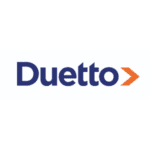 Speaking RM is fun and soooo full of jargon. Just imagine a day without:
Speaking RM is fun and soooo full of jargon. Just imagine a day without:
8:00 AM – Morning analysis
As the city awakens, IVI, the legendary Revenue Manager for a bustling downtown hotel, starts her day with a fresh pint of coffee and a detailed review of the latest reports. Her first task is to analyze the ___________ and ___________. These metrics tell her how well the hotel performed the previous night compared to other hotels in the area. IVI notes that the ___________ is slightly below the competitive set, prompting her to consider tweaking the rates for the coming weekend.
9:00 AM – Competitive positioning check
By 9:00 AM, IVI dives into the ___________. She compares her hotel’s RevPAR with the average of his competitive set, calculating the index to see where his property stands. Today, the ___________ reads 102, indicating her hotel is outperforming the market by 2%. Satisfied, IVI uses this insight to prepare a brief report for the hotel’s stakeholders, highlighting the property’s strong market position.
10:00 AM – Strategic adjustments
Moving into mid-morning, IVI assesses the ___________, tracking how quickly bookings are coming in for the next quarter. She observes a slower___________ than last year, possibly due to a new competitor. IVI decides to launch a targeted email marketing campaign focusing on loyalty program members, offering them exclusive early-bird specials to boost bookings – driving ADR, not sacrificing it through discounts….no no.
11:00 AM – Reviewing booking windows and lead times
As part of his pre-lunch activities, IVI reviews the ___________ data, noticing a trend toward last-minute bookings. To capitalize on this, she adjusts the pricing model to offer slightly lower rates for advance bookings, encouraging guests to book earlier. This strategy aims to stabilize occupancy in the ___________ that are normally half empty and reduce the unpredictability of last-minute bookings. At the end of the day, she was able to increase ___________ ___________ by over 80% and still make a profit, increase her positioning on OTA’s.
12:00 PM – Lunch and learn
IVI takes a brief lunch break but keeps it productive by attending a webinar on emerging trends in revenue management by Fabi, Rockstar of RM (had to 😊). She learns about new techniques in managing ___________, which she plans to discuss with the marketing team to optimize the hotel’s marketing spend.
1:00 PM – Impact of ___________ analysis
Post-lunch, IVI focuses on upcoming city-wide ___________ that could affect bookings. She uses historical data and ___________ to forecast the Impact of ___________ on her hotel’s occupancy and RevPAR. Identifying a major conference scheduled in three months, she coordinates with the sales team to create attractive packages for attendees, aiming to maximize add on revenue during this high-demand period.
2:00 PM – Fine-tuning the revenue mix
In the early afternoon, IVI examines the ___________. She identifies which ___________ are contributing most to the revenue and which are underperforming. She plans specific promotions tailored to boost underperforming ___________, like offering weekend spa packages to leisure travelers, which historically increase ancillary spend.
3:00 PM – Business mix optimization
Towards the end of the day, IVI reviews the ___________, evaluating the distribution of business coming from various channels. Noticing an over-reliance on third-party booking sites, which increases the ___________, she strategizes ways to enhance direct bookings through the hotel’s website by improving user experience and offering booking incentives.
4:00 PM – Wrap-up and planning
As his day winds down, IVI prepares for tomorrow by setting up a dashboard to track these key metrics in real-time. She schedules a meeting with her team for the next morning to review strategies based on today’s insights and to discuss ongoing adjustments.
Conclusion
IVI’s day as a Revenue Manager is dynamic and data-driven, focusing on a balanced approach to both strategic foresight and responsive decision-making. Each day is a new chapter in his ongoing story of navigating the complex waters of hotel revenue management and above all: Communicating with other stakeholders to drive the asset performance forward.




















